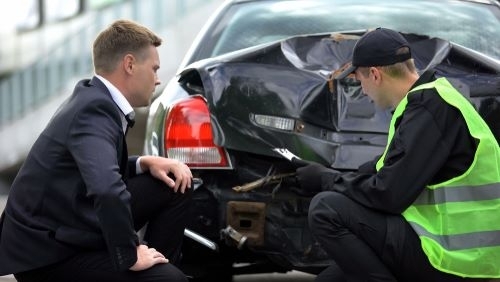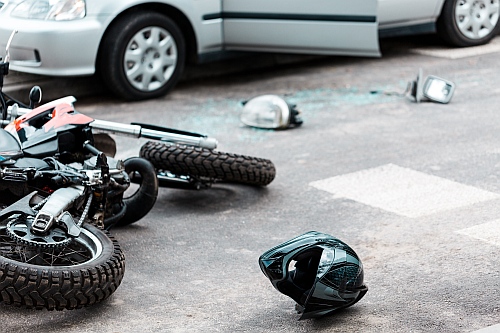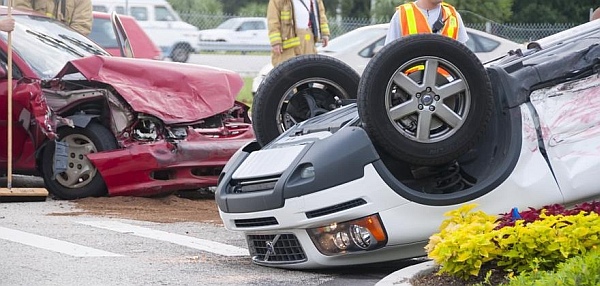- April 18, 2023
If you are involved in an at-fault accident in Louisiana, you need to understand the state’s comparative negligence law. With so much at stake—from insurance costs to liability to points on your driving record—it’s important to know how fault is determined in a court of law.
Although the specifics of comparative fault vary by state, Louisiana has a unique approach to determining who was at fault in a car accident. Under this law, if both parties are found partially responsible for an accident, each can be held partially liable for damages incurred by the other party.
In this article, we’ll tell you what you need to know if you are in an accident while driving in Louisiana. We’ll explain how comparative negligence works and how it affects at-fault accidents. Armed with this information, you can determine your next steps and work towards safely getting back on the road!
What Is Comparative Negligence?
Comparative negligence is a legal doctrine that assesses each party’s fault when determining compensation for damages. Louisiana may attribute partial guilt to each party involved in an accident. It can give rise to claims for financial compensation proportional to each person’s fault.
For example, if one driver is deemed 90% at fault and the other 10%, they would be liable for 90% and 10% of the damages, respectively. In this way, comparative negligence significantly affects how much each party will pay out or receive from an at-fault accident. It also helps create a fairer system that can account for multiple factors and variables when determining fault in an accident.
Louisiana’s Comparative Negligence Law
When understanding Louisiana’s comparative negligence law, you need to know the difference between “comparative fault” and “pure comparative fault.” Under comparative fault, any party injured in an accident that was partially their fault can still seek damages from another party whose negligence was more significant.
In Louisiana, it is a pure comparative negligence state where if you are found to be partially responsible for an accident, for example, if you were 30% at fault, your compensation would be reduced by your percentage of fault (30%). For example, if the total damages are $100,000, you would receive $70,000, and the remaining 30% of the allocated blame will go to any other parties involved in the accident.
It’s important to remember that comparative negligence laws vary from state to state. This means that if you have been injured in an accident caused by another driver and they are found to be partially at fault, depending on which state you live in, your claim could be reduced or disallowed entirely. So be sure to familiarize yourself with your state’s comparative negligence laws to ensure fair settlement or judgment.
How the Law Affects the Compensation in a Car Accident Case
You’re probably wondering how the comparative negligence law affects the available compensation in a car accident case.
The court may find you partially or completely at fault for the accident depending on various factors involved in the accident, including your degree of fault. Considering that if you are found partially at fault, it may reduce your overall compensation regarding an at-fault accident is important.
Degree of Fault
The more at fault the court deems you, the less compensation you will receive. If it is determined that both parties are equally responsible for an accident, a 50/50 split will apply for any claims made, and your available compensation will be significantly reduced.
Claim Amounts
The amount you can recover from a claim can also vary depending on how much your insurance policy covers. A court ruling that finds you partially or fully at fault for an accident can lead to reduced claim amounts or even denial of coverage. Therefore, it’s important to understand what your policy covers.
It may seem like a complicated system, but there are ways to protect yourself from receiving reduced available compensation after an at-fault accident in Louisiana. Understanding the state’s comparative negligence law and what is included in your insurance plan can help keep you informed if such a situation arises.
Damages in a Car Accident Lawsuit
If you or someone you love has been involved in an at-fault accident in Louisiana, you need to be aware of the rules regarding the damages that can be sought in a lawsuit. In the state of Louisiana, both parties are allowed to seek compensation from each other for any loss or damage resulting from the accident.
However, under Louisiana’s comparative negligence law, if both parties are found to be at fault for the accident, their damages will be reduced based on their percentage of fault. For example, if one party is found to be 20% at fault for an accident, their damages will be reduced by 20%.
This can have serious repercussions for those involved in accidents, so it’s important to understand how this law works and how it impacts any legal proceedings that may follow an accident.
Types of Damages Recoverable
Some types of damages recoverable in a Louisiana car accident lawsuit include:
- Medical expenses
- Lost wages
- Property damage
- Pain and suffering
- Funeral costs (in wrongful death cases)
It is important to remember that even if you are partially at fault for an accident, you still may have a valid claim and may be eligible for compensation under comparative negligence law. Therefore, it is best to consult with a lawyer experienced in personal injury who can help evaluate your case and ensure you receive a fair settlement.
Contact an Experienced Louisiana Accident Lawyer to Help With Your Case
Navigating the legal waters of an at-fault accident can be tricky, especially when comparative negligence comes into play. That’s why it’s important to have an experienced Louisiana accident lawyer on your side.
If you’ve been involved in a car crash and need help determining liability or calculating damages, don’t hesitate to contact a qualified accident attorney who understands Louisiana’s comparative negligence laws. With their expertise behind you, you’ll be better equipped to fight for the compensation and justice you deserve.







